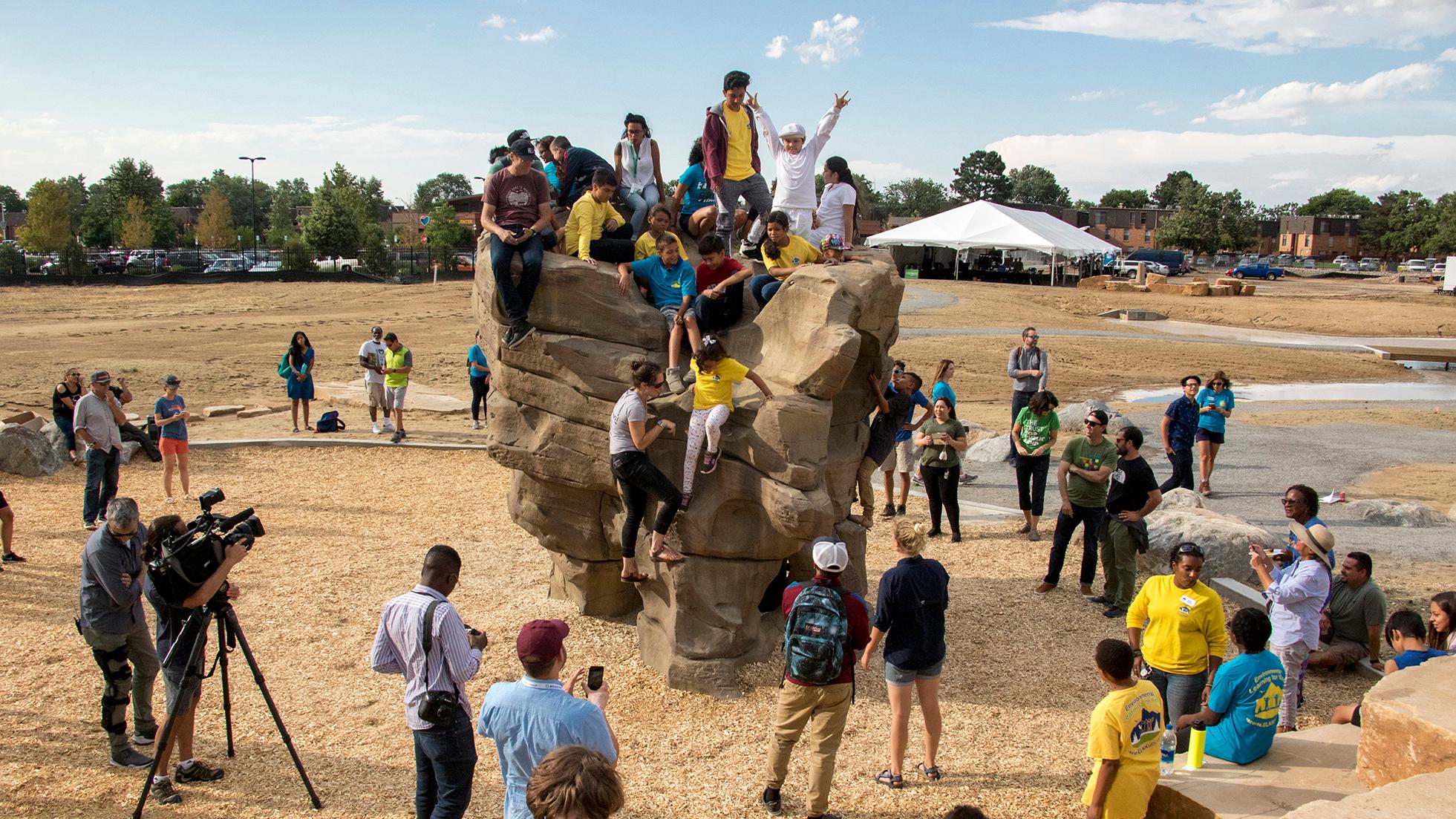The nonprofit Environmental Learning for Kids in July unveiled a huge new climbing wall in Montbello to stoke the community's interest in Montbello Open Space Park, one of Denver's newest green spaces. That park was funded, in part, by a federal grant program that is set to expire on Sunday unless the U.S. Senate votes to reauthorize it.
Advocates are holding out hope that the issue will be brought to a vote, but some worry Washington is in too much disarray to keep the money flowing.
The Land and Water Conservation Fund (LWCF) has contributed more than $4 million to 53 parks in Denver since it was created in 1965. It’s been more broadly used to fund land acquisitions on federal lands, like in Rocky Mountain National Park. The money comes from federal offshore oil and gas leases.
Loretta Pineda, Environmental Learning for Kids’s executive director, told Denverite that an organization like hers needs a diversity of funding streams to keep their work going. LWCF was just one source that got Montbello Open Space off the ground. They also utilized money from foundations and private donors. Without LWCF, they’ll be more vulnerable to changing economic tides that could effect those other sources. A downturn in the stock market might keep a donor or a foundation from giving money, and Pineda would be in a much tougher spot if they don’t also have LWCF funds to rely on.
"All of it together in the mix is what makes this happen, it definitely did for Montbello Open Space," she said. "We can’t have all our eggs in one basket."
LWCF money has gone into local projects from Montbello all the way to Sloan's Lake. Sloan's, in fact, was the first. A document from Denver Parks and Recreation shows that the fund contributed a little more than $57,000 for grass and irrigation there in 1965.
Aaron Weiss, media director for the advocacy group Center for Western Priorities, said Confluence Park was another. That project has been referred to across the country as an example of how LWCF can impact a city.
"You realize every community in the country has a story like that," he said.
Here's a map of federal projects funded by the LWCF, as compiled by the Center for Western Priorities.
But Weiss added that these funds are used for more than fun. One of the most high-profile instances of LWCF use was after the Big Thompson flood in 2013. The money was used to rebuild homes and trails in Lyons, and he's worried the same assistance won't be extended to the southeast now that they're beginning to deal with Hurricane Florence's aftermath.
LWCF was first created with a 50 year authorization. That expired in 2015, and congress only allowed for a temporary, three-year renewal. Weiss said advocates in his camp are hoping for a permanent commitment.
"We shouldn't be sitting here having to have this last-minute fight," he said. "It’s no good for anyone."
A House of Representatives committee passed reauthorization a few weeks ago, but it has yet to pass the House floor or the Senate yet. The Senate is pretty busy this week with hearings on sexual misconduct.
Pineda said, "particularly with this administration," things like this keep getting held up until the last minute.
Senator Michael Bennet released a statement on Wednesday saying the delay to reauthorize funds "demonstrates just how broken Washington is."
Correction: This story originally stated that 83 Denver parks received money from LCWF. That number is actually 53. The fund was used 83 times for those 53 parks. This story was also updated to reflect that it was a U.S. House committee, not the main body, that approved a version of reauthorization.













